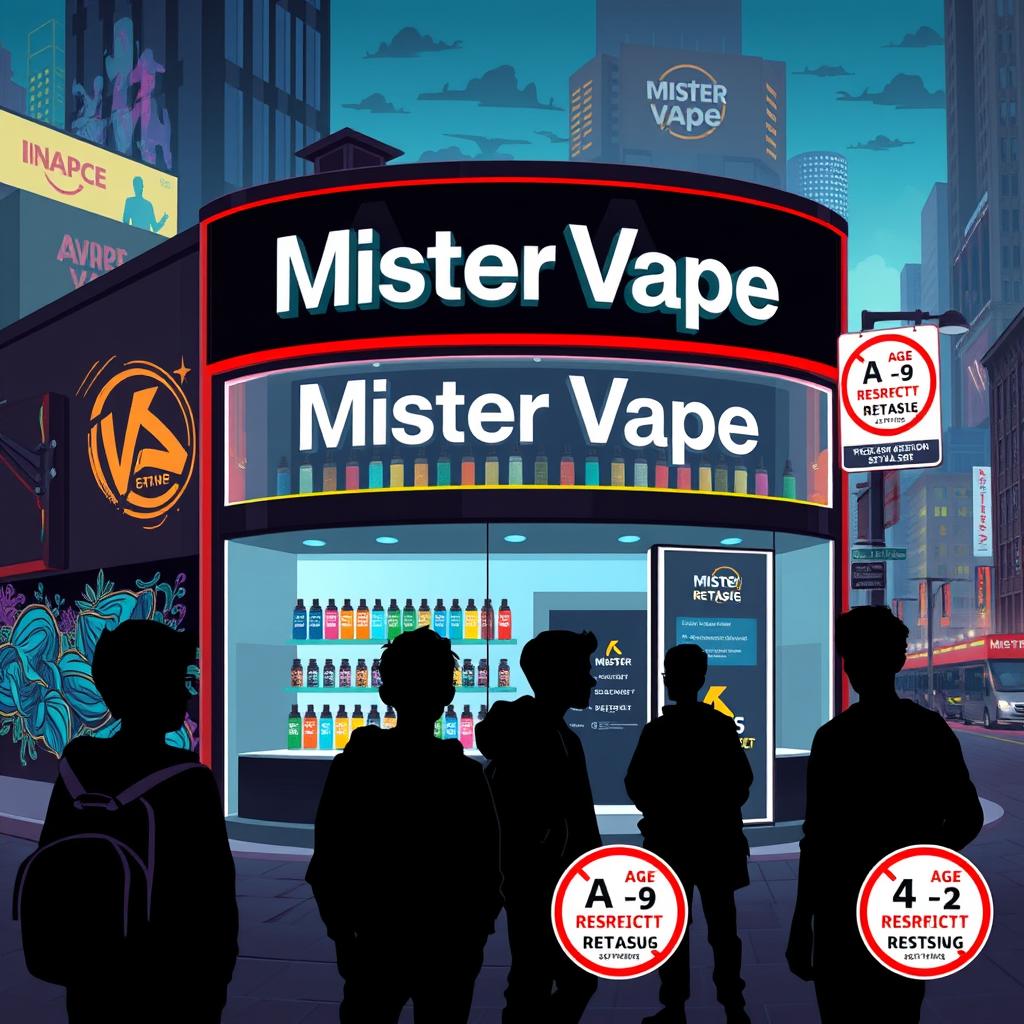Is Vaping at 16 Legal? Facts You Need to Know

Is Vaping at 16 Legal? Facts You Need to Know
In today's fast world, it's key to know the laws about vaping, especially for the young. Many wonder, "Is vaping at 16 legal in the UK?" The answer might surprise you. Let's explore the facts and find out the truth about vaping's legal age in the UK.
Key Takeaways
- The legal age to buy vaping products in the UK is 18 years old.
- Age checks are needed for both online and in-store vape buys.
- Stores can get fines and lose their licence for selling to minors.
- Vaping is meant to help people quit smoking, not for non-smokers.
- There are worries about nicotine's effects on young brains.
Understanding Vaping: What It Is and How It Works
Vaping means breathing in vapour from an electronic device. E-cigarettes heat up a liquid called e-liquid. This liquid has nicotine, flavourings, and other chemicals. The vapour users breathe in is like smoking, but it's less harmful.
But vaping isn't completely safe. It can harm young people's health. Most e-cigarettes have nicotine, which is very addictive and can harm the brain.
- Vaping can cause anxiety, depression, memory problems, and trouble focusing, especially in the young.
- People who vape are more likely to start smoking regular cigarettes.
- The vapour from e-cigarettes has harmful chemicals and tiny particles. These can damage the lungs.
The UK government wants adult smokers to use vapes to quit. But, it's important to know the risks, especially for the young. There are rules and age limits to protect against e-cigarette regulations and vape health hazards.
| Potential Risks of Vaping | Potential Benefits of Vaping |
|---|---|
| Nicotine addiction | Reduced exposure to toxic chemicals compared to smoking |
| Lung damage and respiratory issues | Potential for smoking cessation |
| Mental health problems, such as anxiety and depression | Improved sense of smell and taste |
| Increased risk of transitioning to traditional cigarettes | Customizable flavours and devices |
It's key to understand vaping's good and bad sides. This helps make smart choices, especially for young people.
Legal Age for Vaping in the UK: An Overview
In the UK, you must be 18 to buy vaping products. This rule is part of the Tobacco and Related Products Regulations 2016. It aims to keep young people safe from nicotine addiction.
The government has also tightened rules on vaping. This includes limits on flavours, packaging, and how vapes are shown in shops.
Laws Surrounding Vaping Products
The UK has strict rules for vaping sales and marketing. All e-cigarettes and e-liquids need approval from the Medicines and Healthcare products Regulatory Agency (MHRA) before sale. Shops must check customers' ages, both online and in-store.
Enforcement and Regulations
The government is giving £30 million a year to help local authorities enforce vaping laws. This includes quicker fines of £100 for shops selling to underage customers in England and Wales. The money will help fund more enforcement activities.
However, vaping among UK youth is on the rise. In 2021, 4% of 11 to 15-year-olds in England used vapes regularly, up from 2% in 2018. A 2022 survey found vaping among 11 to 17-year-olds increased to 7% from 4% in 2020.
Disposable vapes have become more popular, with usage jumping from 7.7% in 2021 to 52% in 2022. Policymakers face a big challenge: balancing vaping's benefits for adults with the need to stop underage use.
Health Risks Associated with Vaping for Young People
Vaping is risky for teens, especially because of nicotine. Nicotine can harm brain development. It affects attention, learning, mood, and impulse control.
Common Health Issues Linked to Vaping
Teen vaping risks have short-term health hazards. Symptoms include sweating, dizziness, and increased heart rate. Stopping vape use can lead to headaches and intense cravings.
Long-Term Effects on Adolescent Users
The long-term effects of vape health hazards are still being studied. There are concerns about lung disease and deaths linked to e-cigarettes. Vaping may also lead to using other harmful substances.
The UK government warns that children should never vape. Parents must educate themselves and talk to their teens about vaping dangers.
Vaping vs Smoking: Key Differences
Vaping is seen as a safer choice than smoking, but it's important to know the differences. Unlike cigarettes, which have tar and carbon monoxide, vaping uses a liquid with nicotine, flavours, and other chemicals. This liquid mix is key to understanding vaping's health risks.
Chemical Composition of Vape Liquids
Vape liquids, or e-liquids, have different parts. These include:
- Nicotine: This is the addictive substance found in both cigarettes and vaping products. The nicotine levels in vape liquids vary a lot.
- Propylene glycol and vegetable glycerin: These are the main ingredients that make the "vapour" in e-cigarettes.
- Flavourings: There are many flavours used to make vape liquids taste better, from fruits to desserts.
- Other chemicals: Some vape liquids have extra chemicals, like diacetyl, which has been linked to a lung condition called "popcorn lung".
Perceptions Among Youth
Young people often think vaping is safer than smoking. This belief has made vaping more popular, especially among teens. But, the long-term health effects of vaping on young people are still being studied. The UK government wants to help adults quit smoking with vaping while stopping it from becoming popular among the young.
"Vaping is not a recreational activity and should not be taken up by individuals not aiming to quit smoking."
| Smoking | Vaping |
|---|---|
| Produces tar and carbon monoxide | Typically contains nicotine, flavourings, and other chemicals |
| Causes over 480,000 deaths annually in the United States | Around 2,800 cases of EVALI (lung injury) with 68 resulting in death by early 2020 |
| Secondhand smoke contains over 7,000 chemicals, with about 70 causing cancer | Research indicates a higher risk of respiratory disease for e-cigarette users compared to non-smokers |
| Addictive due to nicotine | Nicotine-containing e-cigarettes may have a higher addiction potential than standard cigarettes among young adults |
The Argument for Vaping as a Smoking Cessation Tool
In the UK, the government supports vaping to help adult smokers quit. A Cochrane review found vaping is more effective than nicotine patches for quitting. It's estimated vaping helps 50,000 to 70,000 fewer smokers each year.
Evidence Supporting Transition from Smoking
Vaping with nicotine can help smokers quit. It's about one-third the cost of smoking, making it more affordable. People using vaping and local Stop Smoking Services are more likely to quit.
Criticism of Vaping as a Cessation Method
Not all experts agree vaping is good for quitting smoking. They worry it might make non-smokers addicted, especially young people. There's not enough proof that e-cigarettes work well for quitting.
The UK government wants to help adult smokers quit but stop young people from vaping. More research and rules are needed to understand e-cigarettes' role in reducing tobacco harm.
"In the short and medium term, vaping poses a small fraction of the risks of smoking."
- UK experts, 2022
Vaping Products Available in the UK
The UK market has a wide range of vaping products. These include rechargeable devices, pod systems, and disposable vapes. Each type meets different needs and preferences. Disposable vapes are especially popular among the young for their ease of use and low cost.
Types of Vaping Devices
- Rechargeable Devices: These are the traditional vaping products. They have a battery and a tank or pod that can be refilled with e-liquid.
- Pod Systems: These are compact and easy to use. They have pre-filled or refillable pods that snap into the device.
- Disposable Vapes: These are convenient and ready to use. They are popular among the young as they need no setup and can be thrown away after use.
Popular E-Liquid Flavours
E-liquids come in many flavours, from classic tobacco and menthol to unique options like fruit and dessert. This variety has raised concerns about their appeal to young people. It's thought that these flavours might encourage more youth to vape.
| Flavour Category | Popularity Among Youth |
|---|---|
| Fruit | 43% of individuals aged 16-19 in the UK vape for fun or because they like it. |
| Dessert | 39% of individuals aged 16-19 in the UK vape to deal with stress or anxiety. |
| Candy | 51% of youth in the UK stated they vape "just to give it a try." |
The UK government is looking at ways to limit vape flavours and packaging. They want to make them less appealing to children and teens.
Parental Guidance on Vaping
Parents have a big role in helping teens understand vaping risks. It's key to talk openly with your kids about vaping dangers.
Talking to Your Teen About Vaping
Starting a conversation about vaping can be tough. But it's vital for your child's health. Let your teen share their views and listen without judging.
Give them facts about vaping's long-term risks. Stress the need to make smart choices.
Recognising Signs of Vaping
Watch for vaping signs like sweet smells or new devices. If you think your child is vaping, talk to them with care. Seek help from doctors or experts.
The UK government and health groups have lots of help for parents. Stay informed and talk to your teen. This way, you can help them make good choices.
"The prevalence of vaping among 11- to 18-year-olds in the UK was 8.6% in 2022 compared to 4.8% in 2020."
The Role of Age Verification
In the UK, you must be 18 to buy e-liquids with nicotine. Shops have to check your age. They often use the 'Challenge 25' rule, asking for ID if you look under 25. This stops young people from buying vaping products.
How Retailers Verify Age
Shops use different ways to check if you're old enough to buy vaping stuff. Here are a few:
- They ask for ID like a driver's licence or passport to check if you're over 18.
- They use age-checking systems online to make sure you're old enough before you buy.
- Staff get trained to spot and handle checks on young customers properly.
Consequences of Failing Age Checks
If a shop sells vaping products to someone too young, they could get fined up to £2,500. The new Tobacco and Vapes Bill wants to make it easier to fine shops £100 on the spot for selling to minors. This shows how important age checks are.
Having good age checks is not just the law. It's also key to selling vaping products responsibly. Shops that only sell to adults help keep young people safe from vaping risks.
| Regulation | Requirement |
|---|---|
| Nicotine Inhaling Products (Age of Sale and Proxy Purchasing) Regulations 2015 | Prohibits the sale of nicotine-containing vaping products to individuals under 18 years old |
| Tobacco and Related Products Regulations (TRPR) | Establishes maximum nicotine concentration (20mg/ml), refill container size (10ml), and e-cigarette tank capacity (2ml) |
| Trading Standards enforcement | Ensures retailers comply with age verification policies and other regulatory requirements |
By following these laws and focusing on age checks, shops help stop young people from vaping. They also help keep the UK vaping market safe and responsible.
Youth Culture and Vaping Trends
The rise of teen vaping risks and underage vaping is a big worry in the UK. Social media plays a big part in this. Sites like TikTok and Instagram make vaping seem cool to young people.
A study showed 20.5% of UK children tried vaping in 2023. This is up from 15.8% in 2022 and 13.9% in 2020. The long-term health effects of vaping on teens are still unknown.
Social Media Influences on Vaping
The UK government is worried about social media's effect on vaping among kids. Peer pressure and the idea that vaping is cool, thanks to influencers, have made it more popular.
Vaping in Popular Culture
Vaping is also seen in music videos and TV shows. This, along with vaping industry marketing, makes vaping seem harmless and desirable to young people.
The data shows vaping is a big part of youth culture. It's clear we need a mix of education, rules, and watching social media to protect teens in the UK.
| Statistic | Value |
|---|---|
| Proportion of children who had tried vaping in 2023 | 20.5% |
| Proportion of children who currently vape in 2023 | 7.6% |
| Percentage of 11-15 year olds who had ever tried vaping | 15% |
| Percentage of 16-17 year olds who had ever tried vaping | 34% |
| Percentage of 18 year olds who had ever tried vaping | 38% |
The data shows vaping is a big problem in the UK, especially among teens. Social media and popular culture have made it seem normal. We need a strong plan to tackle this health issue.
"The rise of teen vaping risks and underage vaping has become a growing concern in the United Kingdom. One of the key factors driving this trend is the pervasive influence of social media on young people's attitudes and behaviours."
Responsibility of Retailers and Suppliers
In the UK, those selling vaping products must follow the law and act ethically. With vaping becoming more popular, especially among the young, these businesses are key. They must ensure vaping is available safely and responsibly.
Legal Obligations
The legal age to buy uk vaping laws in the UK is 18. Shops must check IDs and clearly show that selling to minors is banned. If they don't, they could face serious penalties.
The Tobacco and Vapes Bill also aims to make retailers more accountable. It could limit how e-cigarette regulations are shown in stores. This shows the government's serious effort to stop young people from vaping.
Ethical Considerations in Marketing
Retailers and suppliers must market vaping products wisely. They should not use bright colours, tasty flavours, or cheap prices to attract young people. It's their duty to protect their customers, especially the young and vulnerable.
Good marketing, strict age checks, and stopping proxy buying are essential. This way, retailers and suppliers can show they care and keep the public's trust.
Government Initiatives Addressing Youth Vaping
The UK government is taking action against the rise in youth vaping. The Tobacco and Vapes Bill aims to limit vape flavours, packaging, and displays. This is to make these products less appealing to young people. The government also plans to ban disposable vapes to reduce waste pollution.
Recent Legislative Changes
The Tobacco and Vapes Bill is a step towards a smoke-free generation. It makes it illegal to sell tobacco or herbal smoking products to those born after 1 January 2009. The bill also restricts vape flavours, displays, and advertising to reduce their appeal to children.
Public Health Campaigns
- The UK government has launched campaigns to educate young people about vaping risks. They provide NHS information on vaping as a smoking quit aid and the potential harms of vaping for young people.
- In Wales, the "help me quit" service has helped over 100,000 people quit smoking since 2017. This is part of efforts to prevent 1 in 10 deaths from smoking in the country.
These efforts show a strong commitment to tackling youth vaping. The focus is on both legislative changes and public education to safeguard young people's health in the UK.
| Statistic | Data |
|---|---|
| Increase in 11 to 17 year old vapers using disposables | Almost ninefold in the last 2 years |
| Increase in children using vapes in the past 3 years | Tripled, with 9% of 11 to 15 year olds now using vapes |
| Support for ban on disposable vapes | Nearly 70% of parents, teachers, healthcare professionals, and the general public |
| Responses to public consultation on creating a smoke-free generation | Over 25,000 analyzed, indicating significant public engagement |
| Estimated disposable vapes thrown away per week | 5 million, equivalent to the lithium batteries of 5,000 electric vehicles over a year |
| Smoking-related deaths in the UK per year | 80,000 |
| Smoking-related deaths linked to people aged 35 and over in Wales | More than 1 in 10, averaging about 3,845 deaths per year |
| Annual cost of smoking in Wales | More than £17 billion, with over 17,000 hospital admissions |
| Increase in 11 to 16 year olds using vapes weekly in Wales | From 5.4% in 2021 to 7% in 2022, with 15.9% for year 11 pupils |
Differences in Vaping Laws Across the UK
The UK has similar vaping laws across its nations, but there are some differences. The Tobacco and Vapes Bill aims to make these laws the same everywhere. However, the UK Government, Scottish Government, and Welsh Government have their own ways of enforcing these rules.
England vs Scotland vs Wales
In the UK, you must be 18 to buy e-cigarettes or e-liquids. This rule started on October 1st, 2015. But, vaping is not banned for under-18s in public or at home.
Many places, like buses and shops, can decide if you can vape there. In 2023, the UK plans to ban disposable vapes. The way these laws are enforced might be different in each country.
Regional Variations in Enforcement
The UK has a rule that you must be 18 to buy cigarettes and e-cigarettes. But, the rules for smoking are stricter than for vaping. Schools in the UK have rules against vapes, too.
At first, vaping laws in the UK were not strict. But, as vaping became more popular, more shops and makers appeared. This led to a need to understand insurance for the vaping industry.
| Region | Vaping Laws | Enforcement |
|---|---|---|
| England |
|
|
| Scotland |
|
|
| Wales |
|
|
Alternatives to Vaping
As the dangers of teen vaping and nicotine addiction grow, finding safe alternatives is key. Adults often use gum, patches, and lozenges to quit smoking. But these might not be right for teens. Luckily, there are non-nicotine options that help young people handle stress or peer pressure without vaping's risks.
Non-Nicotine Options for Teens
Teens can try physical activities and mindfulness to manage cravings or urges. Exercise, like running or team sports, releases endorphins and takes their mind off vaping. Mindfulness, through deep breathing or meditation, teaches teens to cope with stress or peer pressure without nicotine.
Counselling and support groups are also great for teens struggling with vaping or mental health issues. These help young people become more resilient and aware, making better choices and avoiding vaping.
The UK government warns that young people should avoid all nicotine products, including vapes. The long-term effects on their health and development are still unknown. By promoting healthy, non-nicotine alternatives, we can guide teens away from teen vaping risks and nicotine addiction in youth.
| Non-Nicotine Alternatives for Teens | Benefits |
|---|---|
| Exercise (e.g. running, cycling, sports) | Releases endorphins, distracts from cravings |
| Mindfulness (e.g. deep breathing, meditation) | Develops coping mechanisms, reduces stress |
| Counselling and support groups | Builds resilience, addresses mental health challenges |
"The UK government emphasises that young people should not use any nicotine products, including vapes, as the long-term effects on adolescent health and development are not yet fully understood."
Parental Rights and Teen Freedom: A Balancing Act
As parents, we face a tricky situation with vaping. We must protect our kids while also giving them space to grow. It's key to find a balance between setting rules and talking openly.
Setting Boundaries
It's vital to have clear rules about vaping. This could mean no vaping at all or strict rules on when and where it's allowed. Watching what your kids do online and who they hang out with is also important. Peer pressure and social media can push teens to vape.
Encouraging Open Communication
It's also crucial to create a safe space for teens to talk about vaping. By listening and guiding, we can help them understand the risks. This builds trust and helps them make smart choices, not secretive ones.
The UK government knows how hard this is and offers lots of help. There are websites and local groups that give advice on vaping. These resources help families deal with the legal and health issues of vaping, keeping our kids safe.
"The key is to strike a balance between protecting our children and respecting their growing independence. With open communication and clear boundaries, we can empower our teens to make informed choices and stay safe."
| Smoking-related Deaths in the UK | Percentage of Smokers in the UK |
|---|---|
| 80,000 deaths per year | 12.9% of the population |
| 64,000 deaths in England | 12.7% in England |
| 8,300 deaths in Scotland | 13.9% in Scotland |
| 5,600 deaths in Wales | 14.1% in Wales |
| 2,200 deaths in Northern Ireland | 14.0% in Northern Ireland |
Resources for Help and Information
In the UK, there are many resources for dealing with vaping issues. These include government-backed initiatives and charitable organisations. They offer support and educational materials for parents, teens, and those affected.
Where to Find Support for Vaping Issues
The National Health Service (NHS) in the UK helps with quitting smoking and vaping. They provide information on nicotine replacement therapies and support services. Organisations like Action on Smoking and Health (ASH) also offer educational resources and advice.
The Office for Health Improvement and Disparities has published evidence-based information on teen vaping risks. This includes both short-term and long-term health effects. Local stop smoking services offer personalised advice and assistance for those trying to quit vaping or smoking.
Educational Resources for Parents and Teens
- The NHS website has a section on vaping, covering the basics, health risks, and quitting tips.
- ASH provides factsheets and reports on vaping impacts, along with guidance for parents and young people.
- The Office for Health Improvement and Disparities has detailed materials on teen vaping dangers, including addiction and long-term consequences.
- Local stop smoking services offer personalised support and advice for those quitting vaping or smoking.
By using these resources, parents and teens can understand vaping risks better. This knowledge helps them make informed decisions and find the right support.
Future of Vaping Regulations in the UK
Vaping in the UK is changing, and so are the rules. The new Tobacco and Vapes Bill aims to balance vaping's benefits against youth access and health risks. It could raise the legal age to buy tobacco and vapes from 18 to 21.
Trends in Legislation
New laws might limit vape flavours, packaging, and ads that attract kids. The government will keep an eye on vaping's health effects and tweak rules as needed. They also plan to make it harder for teens to buy vapes, possibly with new age-checking tech.
Predictions for Youth Access and Health Risks
The UK is worried about teens vaping. To stop this, they might make age checks stricter and explore new age verification tech. As research on vaping's health impacts grows, more rules could be made to protect everyone's health.
FAQ
Is vaping at 16 legal in the UK?
No, in the UK, you must be 18 to buy or use vaping products. This rule applies to all vape kits, disposables, and e-liquids, even those without nicotine.
What is vaping and how does it work?
Vaping means inhaling vapour from an electronic device. E-cigarettes heat a liquid that contains nicotine, flavourings, and other chemicals. It was made to help smokers quit traditional cigarettes.
What are the laws surrounding vaping products in the UK?
In the UK, you must be 18 to buy vaping products. The Tobacco and Vapes Bill aims to restrict vape flavours and packaging. It also wants to make it easier to fine shops that sell to minors.
What are the health risks associated with vaping for young people?
Nicotine in vapes is highly addictive and can harm young brains. It can also cause respiratory problems and increase the risk of nicotine addiction.
How does vaping compare to traditional cigarettes?
Vaping is seen as less harmful than smoking because it doesn't produce tar or carbon monoxide. But, vape liquids still have nicotine and other chemicals. The long-term effects of vaping are still unknown.
Can vaping help adults quit smoking?
Yes, the UK government sees vaping as a way for adults to quit smoking. Studies show vapes are more effective than nicotine replacement therapy for quitting.
What types of vaping products are available in the UK?
The UK offers many vaping products, like rechargeable devices and disposable vapes. E-liquids come in many flavours, which worries about their appeal to young people.
How can parents prevent their teenagers from vaping?
Parents should talk openly with their teens about vaping risks. They should also watch for signs like sweet smells or strange devices.
How do retailers verify the age of vaping customers?
UK retailers must check the age of customers buying vaping products. Many use the 'Challenge 25' policy, asking for ID if a customer looks under 25. Not checking ages can lead to fines.
How does social media influence youth attitudes towards vaping?
Social media can make vaping seem normal to young people. The government is worried about its impact and is looking into how to stop it.
What are the responsibilities of vaping retailers and suppliers?
Retailers and suppliers must not sell to anyone under 18 and display age restrictions. They should also market responsibly, avoiding tactics that appeal to young people.
What initiatives has the UK government introduced to address youth vaping?
The Tobacco and Vapes Bill aims to restrict vape flavours and packaging. The government also plans to ban disposable vapes and launch campaigns to warn young people about vaping risks.
Are there any regional variations in vaping laws across the UK?
While UK vaping laws are mostly the same, there might be some differences in how they are enforced. The Tobacco and Vapes Bill aims to apply across the UK, but details might vary in England, Scotland, and Wales.
What are the alternatives to vaping for young people?
Teens can try exercise, mindfulness, or counselling instead of vaping. The government advises against using any nicotine products, including vapes.
How can parents balance their child's independence with the need to prevent vaping?
Parents should set clear vaping rules while keeping communication open. This helps create a safe space for teens to talk about vaping and peer pressure.
Where can people find resources and support related to vaping issues?
The NHS, Action on Smoking and Health (ASH), and the Office for Health Improvement and Disparities offer help. Local stop smoking services can also provide advice and support for quitting vaping or smoking.
What is the future of vaping regulations in the UK?
Future laws might include more restrictions on vape flavours, packaging, and marketing. The government will keep working to stop young people from vaping. They might use new technology for age checks and keep monitoring vaping's health effects.






